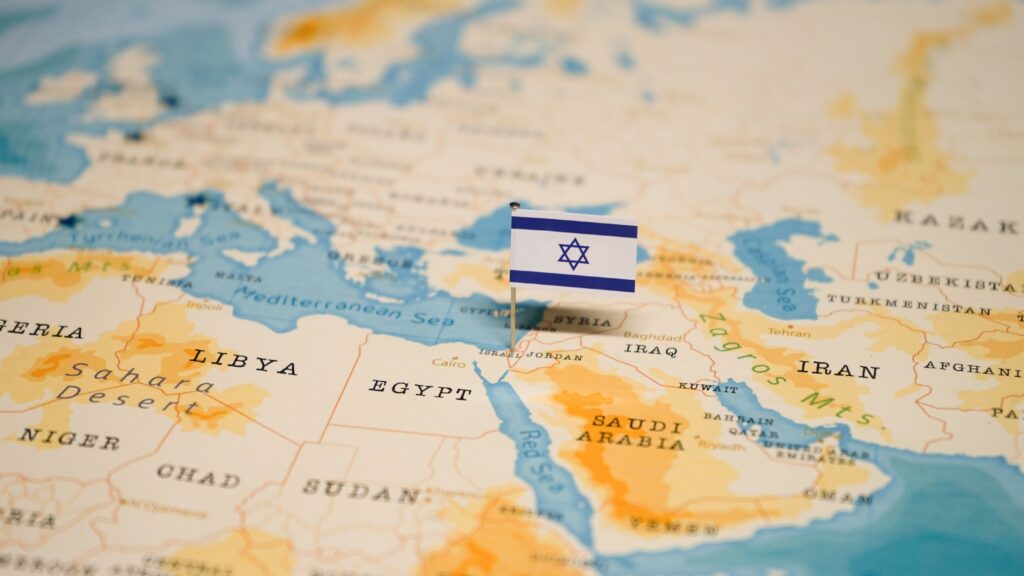In 2014, the State of Israel passed a law to officially make November 30th a Day to Commemorate the Departure and Expulsion of Jews from Arab Countries and Iran, a date now marked by Jewish communities around the world. In 2017, a Canadian man of Iraqi Jewish origin, having discovered his own grandfather’s grave in Sadr City, Baghdad, began a process which led to a global moment of unity and remembrance, by jointly reciting annually Kaddish (the mourners’ prayer) and an Azkara (a memorial prayer) together with synagogues across the world, as a testament to Jews buried in no longer accessible cemeteries in Arab countries.
This year, we are calling on synagogues and other Jewish institutions of all backgrounds to join us and say these prayers on the closest Shabbat to the Day of Commemoration, in remembrance of and solidarity with the Jews from the Middle East and North Africa who can not say them in the presence of their departed family members because many of the cemeteries are inaccessible.
Read More
”We want everyone to acknowledge and accept that Israel is there to exist and that the roots of Jews, Christian are not in New York or Paris but here in our region. They are part of our history and they should be part of our future,’’ said Dr Ali Rashid Al Nuaimi, Chairman of the Defense, Interior and Foreign Affairs Committee of the United Arab Emirates Federal National Council.
‘’From the United Arab Emirates perspective, the Abraham Accords are there to stay,’’ said Dr Ali Rashid Al Nuaimi, Chairman of the Defense, Interior and Foreign Affairs Committee of the UAE Federal National Council, who played a leading role in the 2020 accords which normalized relations between Israel and several Arab countries.
”This the third war in Gaza. Whenever there is something happening in Gaza, people come to us and ask: ‘What do you think of the Abraham Accords. Are you going to change ? ‘’
‘’The Accords are our future. It is not an agreement between two governements but a platform that we believe should transform the region where everyone will enjoy security, stability and prosperity,” he said as reports say that Iran’s main interest was—and remains—to prevent the United States from brokering Saudi-Israel normalization.
‘’This is a people to people engagement. This is what we need. We want everyone to acknowledge and accept that Israel is there to exist and that the roots of Jews, Christian are not in New York or Paris but here in our region. They are part of our history and they should be part of our future,’’ added Dr Ali Rashid Al Nuaimi, during a special online briefing organized by the European Jewish Association (EJA) together with the American Israel Public Affairs Committee (AIPAC), the largest pro-Israel adocacy group in the U.S.
‘’We want to change the educational system and religious narrative. It is very important to understand that there are enemies for what we are doing. Those terrorist organisations don’t respect human life. Don’t let them achieve their goals. No person with a human feeling and common sense will agree with the barbarian terrorist attack that Hamas committed on October 7. No one,’’ he added.
He stressed the need to differenciate between Hamas and the Palestinian people. ‘’Our enemies took advantage of this. We need those who believe in peace in Europe, the US and everywhere to counter the hate narrative that we see in demonstrations in Paris and London.’’
Other speakers included Nicola Beer, Vice-President of the European Parliament who noted that the Abraham Accords ‘’are a good tool to support Israel and peace in the region.’’
‘’We need to make a difference between terrorists and the Palestinian people. The aggressor is Hamas and not Israel. We need to fight against terror everywhere,’’ she said.
‘’We stand strong with Israel and its right to defend itself against Hamas terror. We also understand that in the long run there must be peace for the people of Israel, Palestine and the whole Middle East.’’
On the EU’s position during a vote of a resolution on the war at the United Nations General Assembly last week, the German MEP from the Renew group, criticized those EU countries who voted in favor of a text that didn’t even mention the Hamas massacres committed in south of Israel.
‘’I would like all countries in the EU to vote like the Czech Republic and Austria who voted against,’’ she said.
U.S. Rep. Brad Schneider (D-IL), who is co-chair and co-founder of the Abraham Accords Caucus and a member of the Hiouse of Representatives Foreign Affairs Committee, said : ‘’ On October 7, Hamas committed a heinous terrorist attack, brutally, barbarically slaughtering 1400 people. They used murder, torture, rape as a strategy, as a goal. This is clearly a war crime. There is no justification for this attack. Hamas is an norganisation dedicated to the genocidal vision of eliminating the state of Israel and killing Jews. What we see now is Israel taking action to secure its borders, protect its citizens and rescue the hostages, as well as elilminating Hamas from control of Gaza and from threatening Israel.’’
Former Israeli Deputy Foreign Affairs Minister Idan Roll emphasized the need to have full backing from the moderate Arab states. ‘’We want not Israel but someone else than Hamas to be responsible for the Gaza Strip. When we left Gaza in 2005, Hamas choose not to build and develop it but made it a terrorist hub.We will not go back to the same scenario.’’
‘’When we see the demonstrations in Europe, it is not about the two-state solution but about ‘ Palestine from the river to the sea’ which means no more Israel. Young people are manipulated. Anyone who supports what is going in Europe, supports terror,’’ he said.














